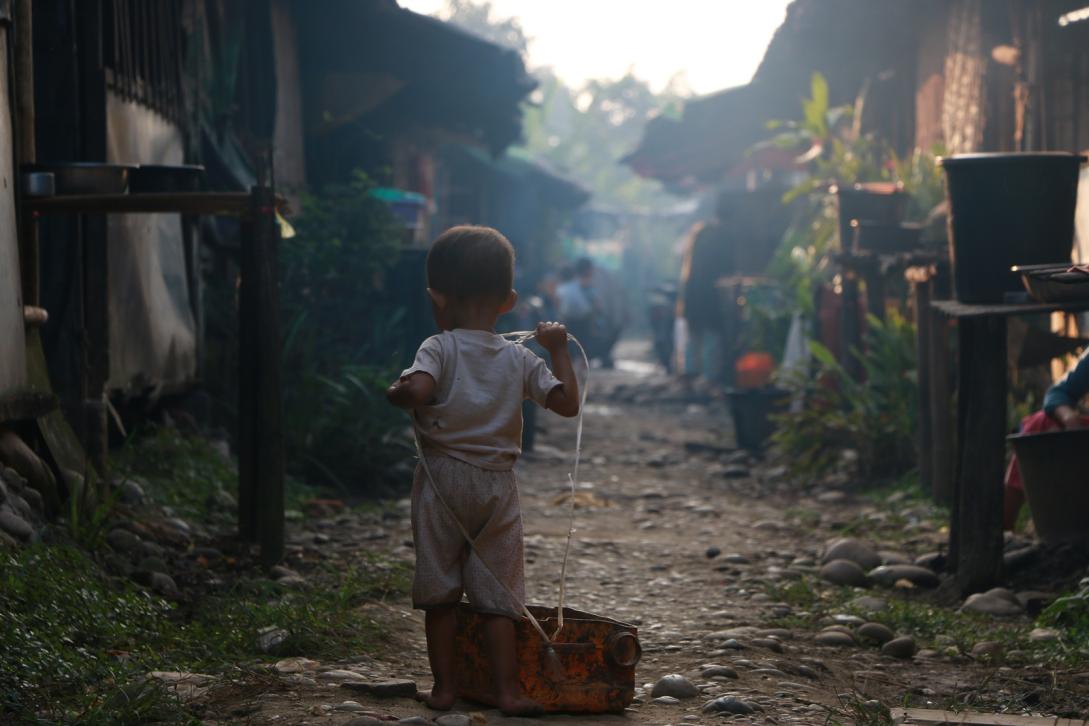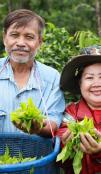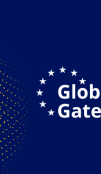Promoting peace in Kachin and northern Shan – the EU's Durable Peace Programme

Roie Tsun arrived at the Maina camp for internally displaced people (IDPs) near Myitkyina, the capital of Kachin State, in July 2012. Together with her husband and their six children, she had to leave behind their orange plantation in 2011 when their village came under attack in an armed clash. "I am a farmer. In the camp, I learned to weave and I can make a small income of about MMK 12,000 [EUR 9] a month for weaving some five longys. I would love to return to my village and be a farmer again, but I am afraid our land was meanwhile occupied by someone else. We have no access to our property."
Land grabbing, the loss of land rights and thereby the loss of livelihoods are key challenges for internally displaced people in Myanmar's conflict affected areas. The European Union’s Durable Peace Programme (DPP) works both with conflict affected communities and civil society to help people rebuild livelihoods and become active in defending their rights, while also working with authorities to be more responsive to community needs. Over the past year alone, 3,500 IDPs joined durable solution awareness sessions to inform them about their rights, in particular land rights, and make plans for potential returns to their places of origin. The programme also worked with hundreds of IDPs assisting them in setting up small business and training them on bookkeeping and business management, in order to help them increase their incomes.
DPP started in 2015 in Kachin State and has meanwhile expanded to also assist conflict affected communities in northern Shan State. The EUR 19.5 million EU-funded programme is managed by Oxfam in Myanmar and implemented with a consortium of 7 local and international organizations (including Kachin Baptist Convention, Karuna Mission Social Solidarity, Metta Development Foundation, Nyein Foundation, SwissAid and Trocaire; and more than 25 local CSOs, to ensure access to even the remotest communities. DPP supports women and men to have greater awareness of their rights and responsibilities, and an increased capacity and motivation to participate in peace and development processes.
Bawk Nu Aung, 21, has been living in Maina camp since 2012. She has participated in trainings to become part of local peace building initiatives. "I wanted to get involved in politics because of the living situation in the camps. I am very proud that in the meantime I have also trained other women on the peace process and women's rights." A new generation of peace-builders, many of which are women, receives training on conflict analysis and dialogue facilitation as part of DPP to get more pro-actively involved in the peace process. A Youth Forum organized by Trocaire and Kachin Development Group (KDG) in April 2019 brought together more than 1,000 youths from IDP camps and host communities for a lively exchange on the issues that concern them most: peace, education, livelihoods, equal opportunities for girls and boys.
Trauma from violent conflict, the loss of livelihoods and the erosion of hope for a better future leave many IDPs in despair and in position of extreme vulnerability. There has also been increased reporting of gender based violence and of both women and men’s acceptance of domestic violence. DPP has offered trauma awareness and counselling to more than 3,200 IDPs over the past year, and set up a women's centre to provide safe space for survivors of gender based violence, while working with the communities to empower women and support them in becoming part of important decision-making processes.
Read more about DPP here.





